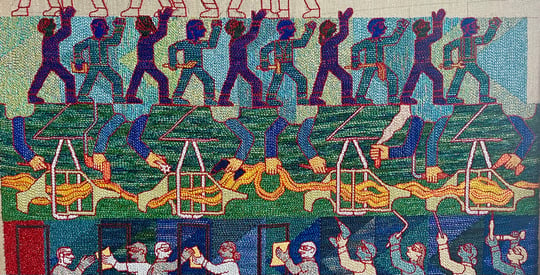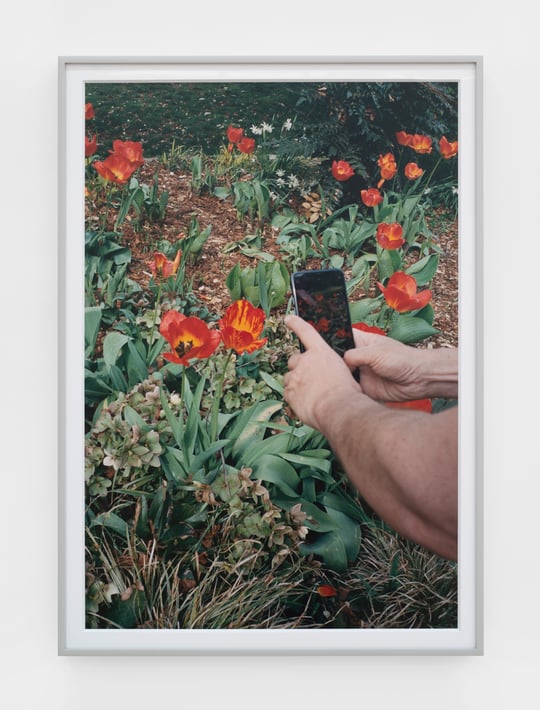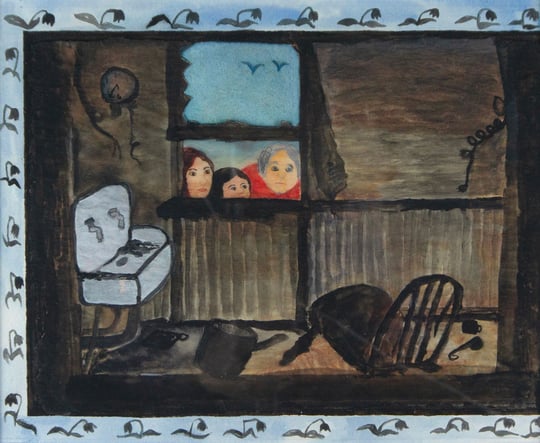Chelsea Rathburn has experienced a lot in the last eight years. Her first full-length poetry collection, The Shifting Line, won the 2005 Richard Wilbur Award and she was awarded a fellowship in poetry from the National Endowment for the Arts, which took her on a research and writing trip through Europe. Her newest full-length release, A Raft of Grief, is a powerful and poignant collection of poems. Breaking away from her usual formal style, Rathburn successully employs an innovative and unique approach to her subjects. Through email, I spoke with Rathburn about her fellowship, poetic style and her new collection.
Scott Daughtridge: You received a National Endowment for the Arts fellowship after the release of The Shifting Line. How much did the NEA fellowship impact A Raft of Grief? How do you think it would have been different without it?
Chelsea Rathburn: The NEA fellowship was life-changing on several levels. At the time, I was broke. A fellowship is not enough to live on, but it gave me some relief from my most serious financial worries and provided me with time to write. Many of my poems are inspired by travel, and several of the poems in A Raft of Grief were either written during or inspired by a research and writing trip to France and Poland in 2009, a trip that I couldn’t have taken without the fellowship. Perhaps most importantly, the NEA offers validation. So much of the time, poets are writing in a vacuum, not sure if the work that they are doing matters to anyone else. Getting the recognition of an NEA fellowship is pretty huge.
SD: Can you talk a little about your poetic style? Who influenced you and how you think it stands apart from other poets?
CR: As a poet, I am most interested in exploring relationships: the relationships between people, between the self and the world, between the self and the self, but also the relationships between memory and fact, and between form and content. (I’m interested in the frictions that occur when things rub up against each other.) My earlier work was primarily formal, that is, employing meter and rhyme, but my more recent writing has moved away from so much visible form—I suppose because I like to challenge myself, and sonnets were becoming a little too easy for me. I looked for new ways to introduce tensions in the poems beyond the constraints of working within a particular form. That’s not to say there aren’t sonnets or strictly metrical poems in the new book; there are, but I think the poems are driven primarily by subject rather than form. I suppose one thing that stands apart is that I have a facility for rhyme and meter, but I use it only when it suits the poem at hand.
My influences are pretty varied, but a few of the poets I return to again and again are Robert Frost, Robert Hass, Louise Glück, and Marie Howe.
SD: I love the idea of the “Travel Eclogues” in your new release. What inspired those poems?
CR: My first marriage ended in 2007, and the initial poems I was writing during and just after the disintegration of that relationship were pretty raw and angry. I published a few of them here and there, but ultimately decided that they didn’t really represent me. At the same time, I’ve always been interested in writing about relationships and there were some dynamics that I still wanted to explore. In 2008, I came across a poem that I’d started years earlier (I keep folders of poems that don’t get off the ground for various reasons) about a strange experience my ex-husband and I had had on a trip to Paris, and I had the idea to cast it as a story being told by a couple to a silent listener—sort of a “what I did on my summer vacation” moment. After I’d written the first poem, Eclogue with Paris and Prayer, I was hooked on the eclogue form and the couple I’d created, so I put them in various situations and essentially eavesdropped on their conversations. They’ve had some experiences that I’ve had, but beyond that they don’t bear much resemblance to me or anyone I know. I found the eclogue form really exhilarating because it allowed for multiple, shifting perspectives and self-implication—things that the typical poem written in the first person can’t do.
SD: You found success with your first book, winning the Richard Wilbur Award. Did you feel pressure when you were writing the poems for your follow-up collection?
CR: I think that any time artists are between projects, there is pressure. How do you create something new while remaining true to your own voice? I certainly don’t want to repeat myself. I’m feeling that pressure again now that A Raft of Grief is out in the world.
SD: What do you think you would be doing professionally if you weren’t a poet?
CR: Well, I certainly don’t make a living off my poetry, so I can tell you what I have done professionally—teaching and writing marketing and advertising materials. In college, I flirted with the idea of double-majoring in meteorology, but that would have required me to take calculus.
From Rathburn’s new collection, A Raft of Grief:
What Was Left
The headboard to the guest room bed,
its mattress gone, the buckled frame
still joined to one unyielding bolt.
Three pairs of wrinkled dress pants
wadded at the bottom of the hamper,
six black t-shirts, an IBM
circa nineteen-eighty-six.
A snorkel, mask, and fins, white socks,
loose change, a broken film projector,
the television. Restaurant matchbooks,
tax records and old license plates,
boxes and bags of photographs—
Venice, Vienna, Cadaques—
the way that they once lived, the notes
and valentines sporting forever
and always, a jar of sauerkraut.





